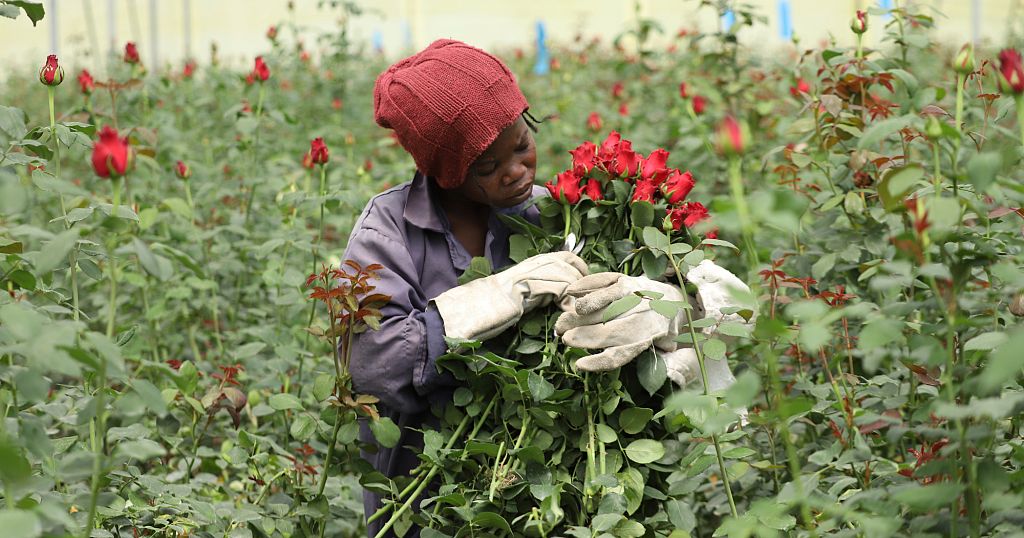Invasive bugs and toxic pesticides hurt Kenya’s Valentine’s rose exports

The red rose – a token of love.
But for Kenya, it’s a major economic sector.
The flower industry employs half a million people, according to a Central Bank of Kenya 2021 report.
Kenya’s government estimates that over a third of its flower exports go to Europe, where Kenyan roses are prized for their longevity.
But it takes effort to make a rose look this good. Effort – and chemicals.
Roses are susceptible to a variety of pests, so pesticides are routinely used to minimise losses and ensure a maximum of perfect blooms with each harvest.
A 2020 study published by the Route To Food Initiative (RTFI) calculates that 75 percent of pesticides used in Kenya are highly hazardous – such as glyphosate-based Roundup – and that nearly half of them are banned in the EU.
As a result, farmers who want to sell to Europe have had to adapt, using fewer pesticides in lower quantities to stay within EU regulations.
Now, they face another challenge, in the form of the False Codling Moth (Thaumatotibia leucotreta), whose larvae eat rose buds, but can affect fruit and vegetables too.
As a result, the EU wants to keep the moth out, and has toughened regulations.
Jacky Mwanzia works as a marketer at Isinya Roses in Kajiado county, south of Kenya’s capital Nairobi.
“They are too strict and most of the time our shipments to the EU are quarantined and it takes time. It is a waste of time when we need to clear for the clients because we have to meet the demand for the customers in time, so we are looking for alternative markets where these measures are not too strict because we end up losing 30 percent of our revenue,” she says.
Kenya Plant Health Inspectorate Service (KEPHIS) says that the EU have increased the sampling of Kenyan roses from 5% in 2020 to 25% since May 2024.
As a result, quarantined shipments to the EU have become more common.
In some cases some shipments have been intercepted and returned in Kenya after the False Codling Moth was detected in the consignments.
“We are having a tough time to monitor the regulations and the rules of the EU, where they are strictly telling zero tolerance on caterpillars, zero tolerance on a few chemicals which with the weather conditions now, we have to use otherwise we will not manage to hit our production that we are targeting,” says Anantha Kumar, Marketing Manager at Isinya Roses.
As a result, some growers are looking to alternative markets with less stringent regulations.
These include the Middle East.
“The Middle East market is ready to accept and the market is really growing,” says Kumar.
Another major market was Russia – but exports have been hit by the war in Ukraine.
Shipping times have almost tripled and freight charges have increased by 50% since the onset of the war – an unprecedented situation in this company’s 25 years of doing business.
“Since the war started, the volumes started reducing and reducing. As we talk today we have lost 30 to 40 percent of our volume to Russia because of the economic situation currently. That 30 to 40 percent, we have to look for new markets of which we are trying the Middle East and other new markets,” says Kumar.
The growers at Isinya Roses aren’t ready to give up on the European market just yet though, and are trialling measures including pheromone traps to control FCM populations instead of pesticides.
But it looks like it will be tough going for flower farmers on Valentine’s Day and Mother’s Day this year, when they would typically make the most sales.
Source: Africanews















